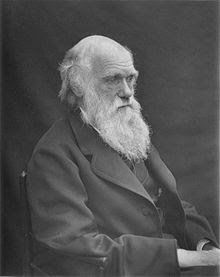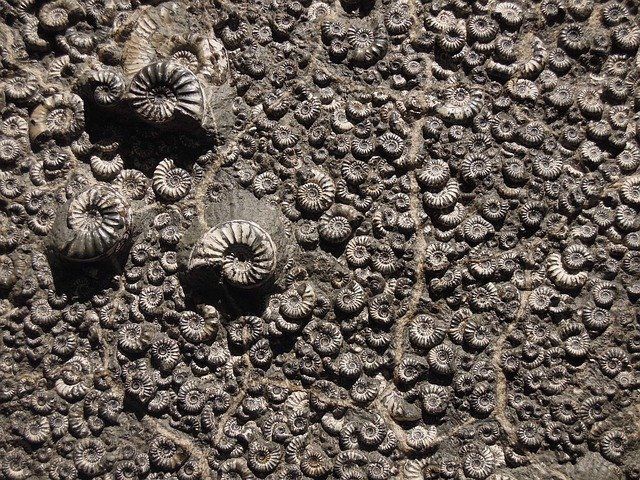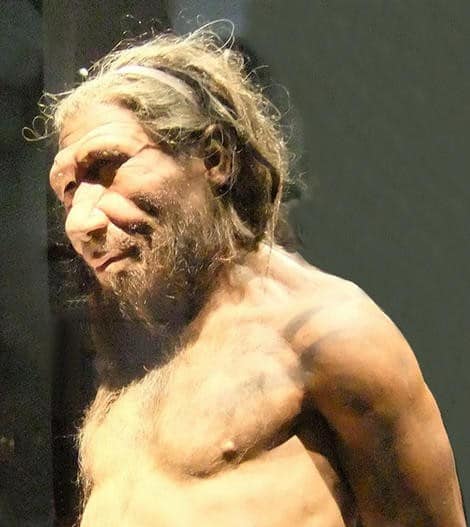
The British biologist Sir Julian Huxley, the first Director of UNESCO, once claimed, ‘Evolution is the most powerful and the most comprehensive idea that has ever arisen on earth’.
On another occasion he argued: ‘It is essential for evolution to become the central core of any educational system, because it is evolution, in the broad sense, that links organic matter with life, and the stars with the earth, and matter with mind, and animals with man. Human history is a continuation of biological evolution in a different form’.
This is powerful stuff. The theory of evolution is so passionately promoted today that the average person is inclined to assume that it must be true.
The Oxford zoologist Richard Dawkins (arguably Britain’s best-known atheist) rams the point home with his usual panache: ‘It is absolutely safe to say that if you meet somebody who claims not to believe in evolution, that person is ignorant, stupid or insane (or wicked, but I’d rather not consider that)’.
I should add that Dawkins went on to say that what he disliked about creationists is that they are intolerant!
Defining evolution
First, we need to be clear what we mean by ‘evolution’. It is used to describe two quite different things – micro-evolution and macro-evolution.
Micro-evolution traces the limited changes that can, indeed, occur within a single species or between closely related species (depending on how you define ‘species’).

This was Darwin’s original ‘special theory’. If he had stuck to it,his name would be just a footnote in history, for countless biologists and naturalists had noted the same thing.
What propelled him into the headlines was his ‘general theory’, or macro-evolution, which claims that billions of tiny mutations pave the way for entirely new kinds of life-form, and that all species can be traced back to a single ancestor.
Macro-evolution claims that all life forms – from ants to antelopes, broccoli to bats, and carrots to cockatoos – are the result, not of creation by God, but of random genetic changes over millions of years.
Believing evolution
This is a startling scenario, yet according to Robert Muller, one-time Assistant Secretary-General of UNO, believing it is ‘the most fundamental thing we can do today’.
I disagree! – not because macro-evolution has some minor flaws, but because it cannot possibly be true.
Let us begin at the beginning. If life evolved from non-living matter, we can properly ask where the original matter (which now constitutes the present universe) came from.
There are only three possibilities – the universe is infinite and eternal; it is self-created; or it was created by a power greater than itself.
The first two options are torpedoed by two of the most fundamental laws of science known to man – the First and Second Laws of Thermodynamics. The First Law categorically states that neither matter nor energy can be created or destroyed.
The Second Law states that, over time, any closed physical system becomes less ordered and more random. This flatly contradicts biological evolution which says that chaotic and random changes lead to greater order and complexity.

This leaves just one alternative. The universe had a beginning; therefore it had a cause – one that must be transcendent, eternal and self-existent. The God revealed in the Bible fits the bill exactly.
Next step
Given the original raw materials, evolution now needs one complete, self-contained, self-replicating life-form. Darwin imagined some ‘warm little pond’ in which chemicals were accidentally stirred together in such a way as to produce the first spark of life.
This idea has been so expertly smuggled into the public domain that it is generally taken for granted. Encyclopaedia Britannica says: ‘It is not unreasonable to suppose that life originated in a watery “soup” of pre-biological organic compounds and that living organisms arose later by surrounding quantities of these compounds by membranes that made them into “cells”.’
But it is unreasonable! In Darwin’s day, a biological cell was nothing more than a simple ‘blob’. Today, we know that there is no such thing as a simple or primitive cell.
Even Mycoplasma genitalium, the bacterium with the smallest known amount of genetic material, has 482 genes with 580,000 ‘base pairs’.
Molecular biologist Michael Denton says that if we were to magnify a single cell a thousand million times we would see ‘an object of unparalleled complexity and adaptive design … resembling an immense automated factory … carrying out almost as many unique functions as all the manufacturing activities of man on earth’!

Slim chance
What are the odds against this happening by chance, as evolution demands? Renowned astro-physicist Sir Fred Hoyle gave this illustration:
‘Anyone with even a nodding acquaintance with the Rubik cube will concede the near impossibility of a solution being obtained by a blind person moving the cube faces at random.
‘Now imagine 1050 blind persons (standing shoulder to shoulder, these would more than fill our entire planetary system) each with a scrambled Rubik cube, and try to conceive of the chance of them all simultaneously arriving at the solved form.
‘You then have the chance of arriving by random shuffling (random variation) at just one of the many bio-polymers on which life depends.’
Small wonder that Hoyle goes on to call the idea of a living cell arising by chance in some kind of primordial soup, ‘nonsense of a high order’.
Fossils
Undeterred, evolutionism presses on. It says that over millions of years, life-forms became increasingly complex. It claims that fossils of progressively ‘improved’ species demonstrate that this must have happened.
A spokesman for the American Association for the Advancement of Science claimed that ‘100 million fossils, identified and dated, constitute 100 million facts that prove evolution beyond any doubt whatsoever’.
But they do no such thing – as any honest interpretation of fossil-finds makes clear. Evolutionism’s problems begin with the so-called ‘Cambrian explosion’, said to have produced fossils dating 500-600 million years ago.

If the evolution story is true, we should by now have found evidence of their ancestors in pre-Cambrian strata – but they are simply not there. Instead, as even Richard Dawkins is forced to admit, the Cambrian fossils seem to be ‘without any evolutionary history’.
The tree of evolution
Then what about those impressive-looking ‘evolutionary trees’, festooned with technical names and said to show how man evolved from all kinds of exotic ancestors?
Colin Patterson, a senior palaeontologist at the British Museum of Natural History, admits that only ‘the tips and nodes of the branches’ (in other words, the separate species themselves) are reliable data, and that ‘the rest is inference’.
The American Museum of Natural History’s Niles Eldredge goes even further. He frankly confesses that he and others have promoted the idea that the fossil history of life-forms supports evolution, ‘all the while knowing that it does not’! In other words, we have had the wool pulled firmly over our eyes.
Missing links
Evolutionism says that the original single-cell life form evolved into the first invertebrates, invertebrates into fish, fish into amphibians, amphibians into reptiles, reptiles into birds and furry quadrupeds, furry quadrupeds into ape-like mammals and ape-like mammals into Homo sapiens.
But like the rest of the story, the idea generates more heat than light because none of the ‘missing links’ has ever been found.

From time to time evolutionists claim to have found one, but even their best-known exhibits have let them down badly. Take the example of human evolution.
Neanderthal Man was proved to be human, Java Man’s bones were found to be a mixture from both apes and humans, Piltdown Man was a hoax, Nutcracker Man turned out to be an ape – and traces of genuine humans were found to have pre-dated Lucy.
Divine foot in the door
Yet if the case for full-blown evolution is so weak, why do otherwise intelligent people persist in pushing it?
The simple answer lies in their worldview, the starting point for all their thinking and speculation. Harvard geneticist Richard Lewontin makes no bones about the way this works:
‘We take the side of science in spite of the patent absurdity of some of its constructs … because we have a prior commitment to materialism … Moreover, that materialism is absolute, for we cannot allow a Divine foot in the door’.
People who are being hoodwinked into believing that fossils disprove the idea that God created fully formed and separate living organisms ought to take careful note of this.
God is being excluded from his creation, not on scientific grounds, but for philosophical reasons.
They might also like to reflect on this statement: ‘Not one change of species into another is on record … we cannot prove that a single species has evolved’.
Who said that? Charles Darwin.
An edited abstract from Evolution: fact or fiction? by John Blanchard (Evangelical Press, 2002)




